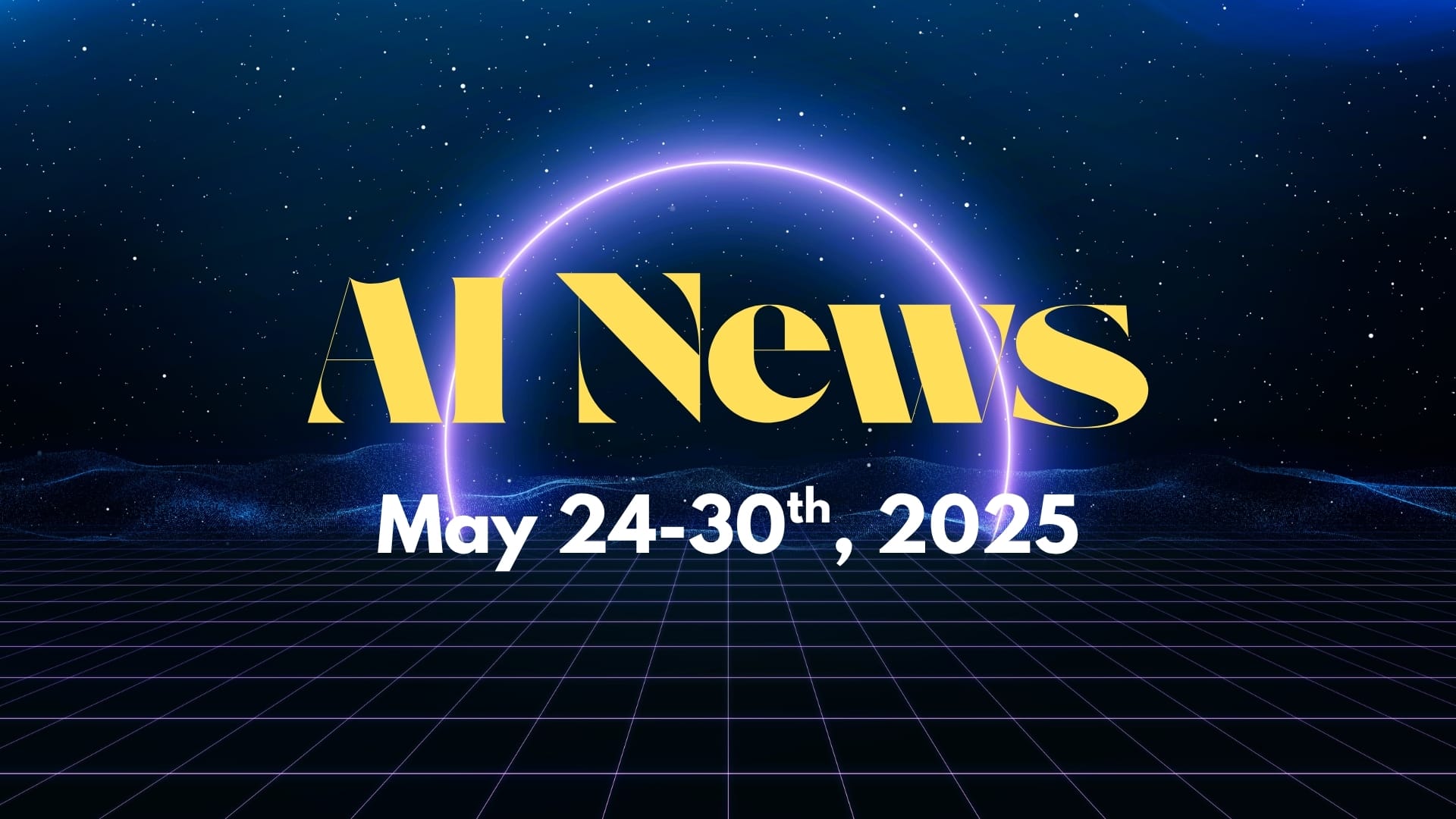The final week of May 2025 has been marked by remarkable strides in artificial intelligence, spanning from cutting-edge model releases to significant policy initiatives. Here’s a comprehensive overview of the most impactful AI developments from the past seven days:
1. Google Unveils Gemini 2.5 Pro with ‘Deep Think’ Mode
At the Google I/O 2025 conference, Google introduced Gemini 2.5 Pro, its most advanced AI model to date. This model features the new ‘Deep Think’ mode, enhancing its capabilities in complex reasoning and coding tasks. Additionally, Gemini 2.5 Pro supports native audio output and improved security measures, setting a new standard for AI performance and safety.
2. Marvell Projects Revenue Surge Amid AI Chip Demand
Marvell Technology has forecasted its second-quarter revenue to reach approximately $2 billion, surpassing Wall Street expectations. This growth is driven by robust demand for Marvell’s custom chips designed for AI workloads in data centers. The company’s data center segment contributed 76% of overall revenue, highlighting the increasing reliance on AI infrastructure.
3. Odisha Approves Comprehensive AI Policy
On May 28, 2025, the Odisha state cabinet approved the Artificial Intelligence Policy-2025, positioning the state as a pioneer in AI-driven governance in India. The policy focuses on infrastructure development, skill enhancement, energy sustainability, and regulatory frameworks to promote responsible AI adoption across sectors like healthcare, agriculture, and education.
4. Anthropic CEO Warns of AI’s Impact on Employment
Dario Amodei, CEO of Anthropic, has issued a stark warning regarding AI’s potential to disrupt the job market. He predicts that AI could eliminate up to 50% of entry-level white-collar jobs within the next five years, potentially raising the U.S. unemployment rate to 20%. Amodei emphasizes the need for transparency and proactive measures to address this looming challenge.
5. New Supercomputer ‘Doudna’ to Advance AI Research
The U.S. Department of Energy has announced the development of a new supercomputer named ‘Doudna,’ honoring Nobel laureate Jennifer Doudna. Set to be operational next year at the Lawrence Berkeley National Laboratory, Doudna will support AI and scientific research, particularly in genomics, bolstering the nation’s computational capabilities.
6. Google Introduces ‘AI Mode’ in Search Platform
Google has unveiled a new ‘AI Mode’ for its Search platform, enabling conversational interactions with search results. This feature aims to provide users with more intuitive and interactive search experiences, reflecting Google’s commitment to integrating AI into its core services.
7. Mistral AI Launches ‘Devstral’ for Advanced Coding
Mistral AI has released ‘Devstral,’ a new AI model focused on coding tasks. Developed in partnership with All Hands AI, Devstral is openly available under an Apache 2.0 license, allowing for unrestricted commercial use. The model outperforms other open models on benchmarks measuring coding skills, making it a valuable tool for developers.
8. DeepMind’s AlphaEvolve Optimizes Algorithms
Google DeepMind has introduced AlphaEvolve, an evolutionary coding agent that utilizes large language models like Gemini to design optimized algorithms. AlphaEvolve has demonstrated the ability to match or surpass state-of-the-art algorithms in various mathematical problems, showcasing AI’s potential in advancing computational methods.
9. OpenAI Acquires Jony Ive’s Startup ‘io’
OpenAI has acquired ‘io,’ the startup founded by renowned designer Jony Ive, for $6.5 billion. This acquisition aims to develop AI “companions” and includes plans for a massive data center project named ‘Stargate’ in Abu Dhabi, signaling OpenAI’s ambition to expand its AI infrastructure.
10. Microsoft’s Build 2025 Highlights AI Strategies
At the Build 2025 conference, Microsoft showcased its AI-driven ‘agentic’ strategies, emphasizing the integration of AI into various applications. Despite facing protests during keynotes, the event highlighted Microsoft’s commitment to advancing AI technologies and their applications across industries.
These developments underscore the rapid pace at which AI is evolving and its growing impact on various sectors. Staying informed about these advancements is crucial for understanding the future trajectory of technology and its implications for society.

Leave a Reply
You must be logged in to post a comment.